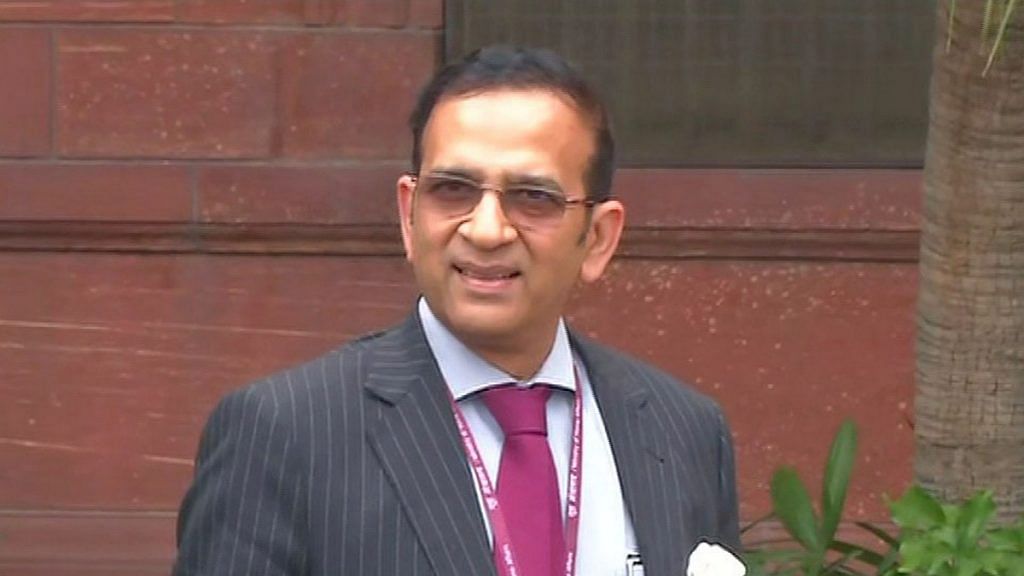New Delhi: Khalistani groups do not enjoy any kind of support in Canada, and the Justin Trudeau administration has rejected the so-called ‘Referendum 2020’ for a separate Sikh country, Indian High Commissioner to Canada Ajay Bisaria has told ThePrint in an interview.
Bisaria said the involvement of Pakistani agencies in sustaining and fuelling the Khalistan agenda in Canada has been publicly revealed.
“There is absolutely no traction for Khalistani issues in Punjab in India. Even in Canada, the extremist elements are a mere fraction of the overall Indian Sikh community that makes Canada their home,” Bisaria, who previously served as India’s high commissioner to Pakistan, said.
“Often, these extremist elements are noisy and appear to carry more weight than they actually do on the ground. We have seen their influence erode every day in Canada,” he said.
In July, the Trudeau government rejected the ‘Referendum 2020’ organised by Sikhs for Justice (SFJ), a pro-Khalistani group. The group is trying to build a consensus among Sikhs across the world for a separate state.
“Eventually, the extremists will be seen for what they are — opportunists making use of the tolerance that democracies show. Both India and Canada have paid a heavy price for terrorist activities, and we are committed to continue our deep cooperation to deter and stop such terrorist and extremist activities and ensure our mutual security,” Bisaria added.
The issue of Khalistani separatists caused a major controversy during Prime Minister Trudeau’s maiden visit to India in 2018. But after Trudeau remained in government after the Canadian general election last year, both countries have had several engagements. Prime Minister Narendra Modi has spoken to Trudeau twice, and there have also been discussions between the foreign affairs and commerce ministers.
Bisaria highlighted that India and Canada have a “robust security cooperation” with “excellent coordination” between agencies.
“We have a joint working group on counter-terrorism where functional and executive-level information is freely exchanged,” he said.
Also read: Imran Khan’s fantasy to revive Khalistan isn’t happening because Sikhs aren’t gullible
Canada pressing ‘reset’ button with China
On the ongoing tensions between India and China at the Line of Actual Control in eastern Ladakh, Bisaria said Canada has been briefed on the developments.
“Canada is a democracy and a recent public opinion poll indicated that China’s credibility was at an all-time low among the Canadian public. China’s current phase of expansionism, belligerence in its neighbourhood, debt and hostage diplomacy and flouting of the rule of law has caused discomfort in democratic countries. Several countries across the world are reviewing their China relationship; some are pressing the reset button,” he said.
“As strategic partners, India and Canada discuss all matters of mutual interest, including regional and global developments… The Canadian government had offered its condolences to the families of Indian soldiers who made the ultimate sacrifice in June,” Bisaria said, referring to the 15 June Galwan Valley clash.
There was a bitter episode in the Canada-China relationship when Chinese telecom major Huawei’s Chief Financial Officer Meng Wanzhou was arrested in Vancouver in December 2018 for breaking the US’ Iranian sanctions. The extradition case is still going on.
Meanwhile, Canada is also gearing up to release its own Indo-Pacific strategy that is aimed at diversifying some Canadian businesses and supply chains.
“The Covid-19 pandemic has demonstrated clearly to everyone the fragility of single-point supply chains. Many Canadian manufacturers and companies are now looking to diversify and de-risk their global supply chains,” Bisaria said.
“Given India’s strong potential and competitive manufacturing capabilities, strong intellectual property and rule of law-based systems and a booming aspirational market, more and more Canadian players are looking at India as a destination for global manufacturing,” he added.
Also read: With row over Covid vaccine testing, Canada-China relations go from bad to worse
Canada bullish on Indian economy
At a time when India is seeing gloomy growth forecasts, Bisaria said Canada is “bullish” on the Indian economy, and the country’s pension funds continue to invest in India.
The Canadian Pension Plan Investment Board (CPPIB), one of the world’s largest retirement funds, has been investing in India heavily since it opened an office in Mumbai.
However, owing to the pending Foreign Investment Protection and Promotion Agreement (FIPPA) between India and Canada, the investments have slowed down.
According to Bisaria, both governments are now looking to “move towards an early conclusion of the FIPPA”.
“Our chief negotiators have restarted their consultations and have exchanged documents indicating areas where there is flexibility on both sides,” he said.
India and Canada had earlier locked horns on whether to sign the FIPPA first or negotiate it as part of the proposed trade pact — Comprehensive Economic Partnership Agreement (CEPA) — with investments as a chapter in it.
“We have been negotiating both the agreements (CEPA and FIPPA),” Bisaria said.
The CEPA talks have been going on between both countries since November 2010.
Also read: Trudeau’s disastrous trip makes way for focus on trade in India-Canada ties
